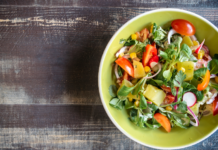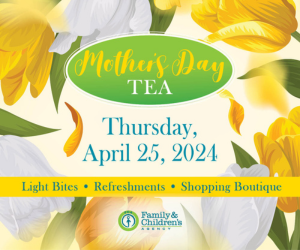 In celebration of National Wear Red Day, an American Heart Association event that seeks to raise awareness of heart disease, the number one killer in women, I’m sharing some heart health nutrition myths and facts and asking fellow Registered Dietitian-Nutritionists to weigh in.
In celebration of National Wear Red Day, an American Heart Association event that seeks to raise awareness of heart disease, the number one killer in women, I’m sharing some heart health nutrition myths and facts and asking fellow Registered Dietitian-Nutritionists to weigh in.
1. The lower the fat, the more heart-healthy the food is.
This might be the case when comparing Brussels Sprouts to butter, but not necessarily so when comparing nuts to “Lowfat Organic Veggie Chips.” Processed snacks like these are high in sodium, and low in fiber, with barely enough veggies to add color. Just because a food has the word veggie in it (or organic) doesn’t make it heart-healthy. Focus on whole foods over processed snacks for heart health.
2. All red meat is equally bad for you.
While a diet focused on plant-based foods is heart-healthy, oversized portions and processing may be the biggest negative factors when it comes to red meat. A 4 oz. piece of a lean cut like sirloin served alongside roasted asparagus, red peppers, green beans, and sweet potato is a nutrient-rich, heart-healthy meal. A 16 oz. Porterhouse is another story altogether, and processed, high-sodium meats like bologna and hot dogs have been linked to a higher risk of heart disease.
3. Egg yolks cause heart disease.
Health experts, including Registered Dietitians Chere Bork and Anne Danahy, agree that eggs should be on the A+ list! A whole egg contains only 75 calories and heart-healthy nutrients like Vitamin D and folate. Current research shows that in most people, eating an egg, even daily, is not linked with an increase in heart disease, and the protein and fat in eggs can help keep you satisfied. What many people eat with their eggs is often the problem (sausage, bulky rolls, bread with butter, tons of cheese).
4. Fat is Fat is Fat.
When I asked Registered Dietitians KerriAnn Jennings and Sharon Palmer what the biggest myths were, they agreed that many people don’t realize that the kind of fat is more important than looking at total fat. While this might not be news to you, I find that many people are still looking at total fat grams on the food label rather than focusing on the type of fat.
Avoid trans fats (look for 0 grams on the food label and watch out for the words partially hydrogenated or hydrogenated in the ingredient list), and keep saturated fat to a minimum. While the controversy over whether certain saturated fats are better than others has become a widespread debate, whether you are choosing coconut oil (92% saturated fat), olive oil (14% saturated ), or canola oil (7% saturated ), at 120 calories per tablespoon, keep your added oil portion size small.
Dipping bread in 3 Tbs. of oil because it’s olive oil will add more calories to your meal than you bargained for. And how about omega-3 fatty acids? This type of polyunsaturated fat, found in salmon, mackerel, and sardines, and smaller amounts in walnuts and flaxseed, aids in reducing inflammation and supporting heart health. Cheryl Harris finds that due to concerns of mercury contamination, many don’t follow the American Heart Association guidelines of eating fish twice a week. She suggests incorporating fish known to be lower in mercury, like salmon and trout.


























